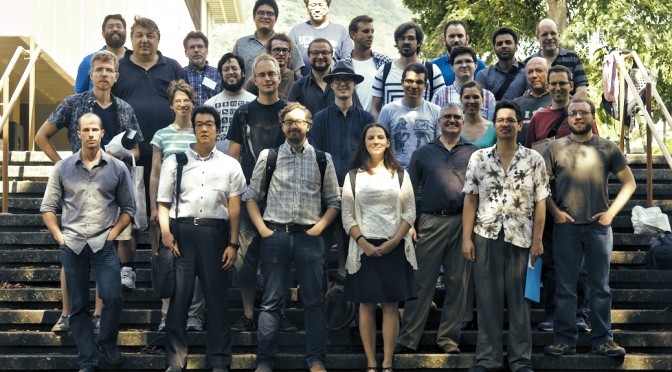Announcement: Post Proceedings CCR 2016
CCR 2016 was a very successful meeting with lots of new ideas in algorithmic randomness and computability theory. We plan a post-proceedings volume in the journal Theory of Computing Systems.
Editors R. Downey, D. Hirschfeldt, and B. Kjos-Hanssen.
Deadline: 1 July 2016.
Papers related to the theme of the conference (not only from those who attended) will be considered. Normal TOCS standards of acceptance are applied. Early submission is encouraged and such papers will processed at time of submission. Submissions should be original research but high quality survey articles may be considered provided that they also contain significant original research.
Papers should be submitted to the site
‘www.editorialmanager.com/tocs/’
using the article type
“S.I. : CCR 2016 – By Invitation Only”.
Please contact the Vithyaa Bathman (Vithyaa.Bathman [at] springer.com), if you have any queries regarding the submission process.





